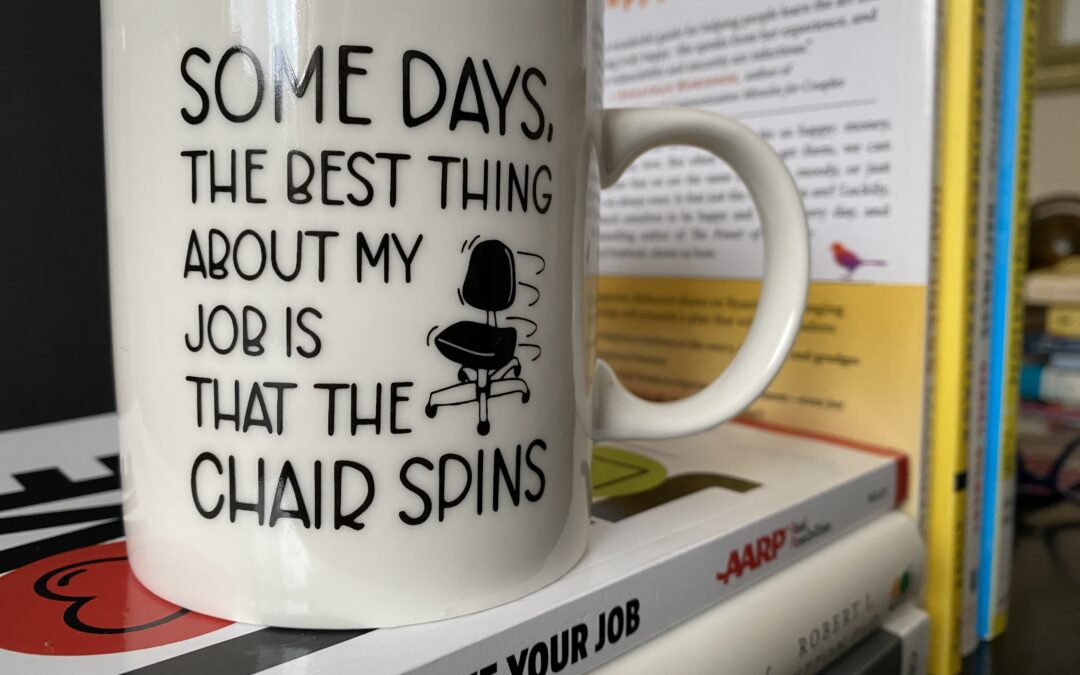Humor is no laughing matter. Well, at least not when it comes to enjoying your job. It not only helps relieves any stress at the time but also helps develop resiliency in the future. Laughter is a natural mood elevator, according to a Cornell University study. It also makes others want to work with you, creates team spirit, and makes the job more enjoyable.
He who laughs, lasts. Even unpleasant jobs can be stress-free if you inject humor into the workplace. Laughter has healing power, and it has been known to reduce blood pressure, decrease heart rate and increase respiration. When you laugh, the body releases endorphins, and depression declines. When you relax again afterward, that good feeling lasts for a day or two.
A Robert Half International survey found that 91% of executives believe a sense of humor is important for career advancement, and 84% feel that people with a good sense of humor do a better job. Humor is important at all levels in an organization. A Bell Leadership Institute study found that the two most desirable traits in leaders were a strong work ethic and a good sense of humor.
There is even evidence that humor helps produce an environment that encourages innovation because people are more creative when they are relaxed. Let’s face it, we all work better when we’re in a good mood. And if you have decided to use your current, unpleasant job as a stepping stone to a better job elsewhere, you might as make it as pleasant as possible while you’re still there. In fact, you might enjoy it so much that you will want to stay where you are. It’s amazing the difference a little humor makes in any environment.
Laughter, and even just smiling, is contagious – like anger, stress, and yawning. We catch more than just colds from one another. We can catch people’s moods, pain, grief, and compassion. And body language aside, the reason appears to be those mirror neurons that have been capturing the interests of neurologists and others in the last 10 years or more. These mirror neurons are cells scattered throughout our body that reflect their surroundings, including the actions and feelings of others. Our mirror neurons fire regardless of whether we or someone else is performing a specific action. So, if you cringe at the sight of someone else getting hurt, empathize with your friends who are grieving, and feel uncomfortable when a co-worker is upset and anxious, blame it on those specialized brain cells. When your mother told you, as she gave you a slap to the side of your head, “This hurts me more than it hurts you,” she could have been telling the truth.
So, lighten up. Practice laughing at yourself when you make a mistake. Smile at people. You might even join the boss in laughing at those corny jokes he makes most mornings.
The late Norman Cousins, in his book, Anatomy of An Illness, gave an amazing account of the therapeutic value of laughter as he related his own successful fight against a crippling disease. He also described other work that has been conducted on the beneficial aspects of laughter. Although As research becomes more plentiful, it indicates that laughter and attitude contribute to a healthy lifestyle and might even “cure” illness. Sigmund Freud for one believed that mirth was a highly useful way of counteracting nervous tension, and that humor could be used as an effective therapy.
I have found that one of the best ways to reduce the stress of a boring, dead-end job is to do the job well. Be the best at whatever you are doing. You get stress-relieving satisfaction from doing a job well. And you may get some compliments from the boss and open some opportunities for more interesting work, or at least a great reference for your next job. You can’t lose. If you are temporarily locked in a job that you do not like, make the most of it. It is not a life sentence. At worst, it is simply a stepping stone on your road to success. Make it a personal challenge to get something valuable out of the experience while you are there. You may be surprised at the results.
In part 7 of this series, I will explain how the addition of adequate sleep will also help you immensely in whatever job you have at the present time. That is, as long as you don’t sleep at work.
In the meantime. If you would like the full report on which this series is based, it is available for instant download at our website for $4.95.


Recent Comments